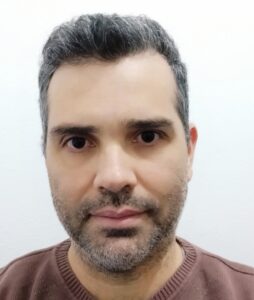[gtranslate]teste
Course 1

Development of autonomous robots with BDI agents and ROS
Prof. Dr. Maiquel de Brito
Abstract: BDI agents are a suitable approach for developing autonomous systems, including robots, to act in dynamic, complex environments. These systems are context-aware and can respond to changing circumstances while also taking proactive steps to achieve long-term objectives. On the other hand, the Robot Operating System (ROS) is a collection of software libraries and tools that aid in robot development. This course introduces the programming of BDI agents for controlling ROS-based robots. Agents are programmed using the JaCaMo framework. It provides tools for developing not only the agents but also for facilitating interaction between them, coordinating their activities, and exploring resources available in the environment. Some framework extensions are used to incorporate robot elements, such as physical actuators and sensor values, into the reasoning cycle of the agents. The theoretical foundation for all concepts is supplemented with hands-on activities to create simulated ROS-based robots controlled by BDI agents.
Course 2


Introduction to Distributed and Embedded Multiagent Systems
Prof. MSc. Nilson Mori Lazarin
Prof. Dr. Carlos Eduardo Pantoja
Abstract: Several application domains have used the Internet of Things (IoT) paradigm by using devices that perceive the real-world environment and produce raw data to be processed in the cloud. On the other hand, pervasive computing has used Artificial Intelligence (AI) paradigm to promote information extraction and decision-making at the edge computing layer. Thus, the intersection between the paradigms of AI and IoT conceived a new area of possibilities called Artificial Intelligence of Things (AIoT). Considering this scenario, we introduce the development of cognitive, autonomous, and collaborative IoT devices that are capable of perceiving, deciding, and acting in the real world, using an embedded multi-agent systems approach that allows the implementation of mental attitudes of beliefs, desires, and intentions into physical devices. In this workshop, students will understand how to use a specialized version of the Jason framework for embedded systems; they will use an Integrated Development Environment to program the Firmware and Reasoning layers of cognitive devices; they will know about a specific-purpose Operating System for embedded multi-agent systems; and finally, they will access an IoT network to allow communication between autonomous agents and cognitive hardware.
Course 3


Development Process of Multiagent Systems
Prof. Dr. Célia Ghedini Ralha
Prof. Msc. Tiago Henrique Faccio Segato
Abstract: Autonomous agents and multiagent systems are becoming increasingly prominent as the size and complexity of real-world systems grow. There are various emerging applications involving agents to solve complex problems in real-world domains, such as intelligent systems for the Internet of Things (IoT), automated systems for critical infrastructure networks, intelligent resource allocation systems for social domains like security, auctions, procurements for goods and services, service robots, autonomous vehicles. However, multiagent systems development needs to provide software engineers with concepts, notations, processes, techniques, tools, and languages to succeed. This course’s audience includes researchers, students, and practitioners in all areas of agent technology. The course aims to introduce the development of multiagent systems using a process, starting from understanding the problem and the system design, including pre-project definitions, modeling with Tropos methodology, and implementation with open-source frameworks. A multiagent system developed for a real-world problem is used to illustrate the method with hands-on activities to allow a better understanding of research on engineering multiagent systems.